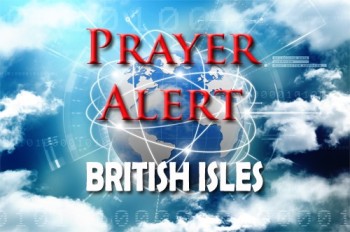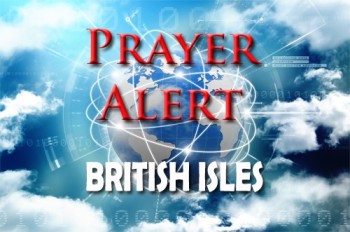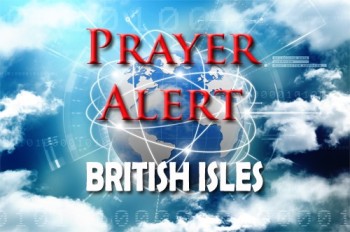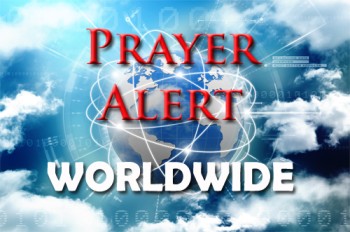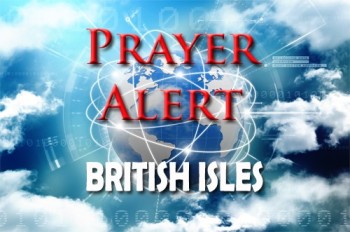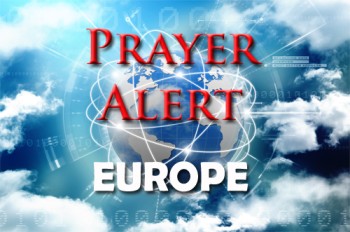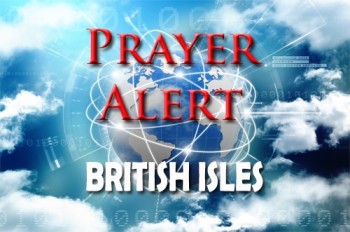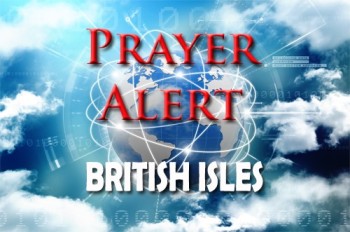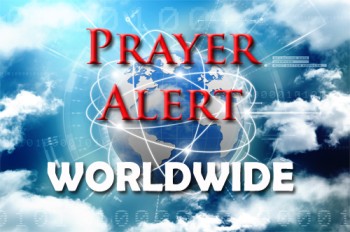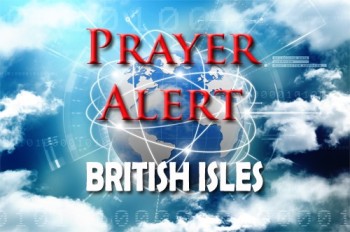Displaying items by tag: Economy
Bank governor: ‘global shocks’ the biggest threat to UK economy
Bank of England governor Andrew Bailey has identified 'global shocks' as a significant threat to the UK economy. During a treasury committee session, he expressed concerns about the situation in the Red Sea, especially regarding oil supplies. Recent attacks by Iran-backed Houthi rebels on cargo ships in the Suez Canal have prompted some vessels to reroute for safety reasons. Oil giant BP even temporarily halted all oil shipments through the Red Sea due to the threat. Bailey said that these disruptions could impact shipping prices and costs, which would have implications in the monetary policy realm. However, he noted that there has not yet been a prolonged spike in oil prices. Deputy governor Sarah Breeden also highlighted the threat of uncertainty, encompassing macroeconomic conditions, geopolitical tensions, credit risks, and unemployment. Regarding the UK housing market and interest rates, Bailey observed that market interest rates have recently decreased, resulting in lower mortgage costs.
Falling inflation could boost the housing market – but there’s a catch
The Bank of England's interest rate hikes, aimed at reducing inflation, have led to a slowdown in the UK housing market. Recent data reveals a significant drop in house prices, the largest since October 2011. This decline, most pronounced in London, reflects the impact of pandemic-driven price surges. Despite this decrease, the housing market faces long-term challenges. Interest rates have risen, functioning slowly like drip filter coffee, and have a delayed effect on the market. This delay is due to the time taken for banks to adjust mortgage rates and for these changes to be reflected in official statistics. The latest data from the Office for National Statistics (ONS) show a 1.2% drop in house prices over a year, marking the fastest decline in over a decade. Financial markets anticipate rate cuts next year, which could revive the market. However, the overall cost of living remains high, with increased expenses from food to household bills. Over a million people will face higher mortgage costs next year.
Interest rate held at 5.25% for third time by Bank of England
The Bank of England has maintained its interest rate at 5.25% for the third consecutive meeting. This decision reflects the Bank's stance that borrowing costs need to remain high for an extended period to combat inflation, which is still well above the target rate. Unlike the US Federal Reserve, which hinted at potential rate cuts next year, the Bank of England, led by Andrew Bailey, suggests that the UK is not yet in a position to consider such reductions. Bailey expressed that it is too early to speculate about cutting rates, emphasising the need for more progress in controlling inflation. The decision was not unanimous, with three members of the Monetary Policy Committee (MPC) arguing for a rate increase, but they were outnumbered by the six others. Despite faster-than-expected inflation drops and signs of economic weakness, the Bank is cautious about reducing rates too soon, fearing a resurgence in inflation. Bailey noted that while significant progress has been made in reducing inflation from over 10% in January to 4.6% in October, there is still a journey ahead to reach the 2% target.
South Africa: plans for new nuclear power stations
The government has announced that South Africa, battling crippling power blackouts, plans to add 2,500 megawatts of new nuclear generation. The country has Africa's only nuclear power station, but the Koeberg plant near Cape Town is currently only working at half capacity. The first of the new units will probably come on stream in 2032 or 2033. Electricity minister Kgosientsho Ramokgopa said the extra nuclear power would be a significant milestone. He added that it would be part of the government action to ‘ending the existential challenge that is confronting the country’ over power shortages and long-term energy security. Rotating power cuts of up to twelve hours a day over the past fifteen years have badly hit the economy and the government's reputation as it heads into an election next year. National power company Eskom has been tainted by corruption and maintenance problems which have led to the power cuts. In a bid to extend the life of the Koeberg plant by twenty years, one unit was closed for nearly a year and the second unit was shut down for maintenance this week.
Section 114 fear for 1 in 5 councils
A Local Government Association (LGA) survey reveals that about 20% of council leaders and executives in England anticipate possibly issuing Section 114 notices, reflecting an inability to balance budgets due to funding shortfalls. A projected £4 billion funding deficit over the next two years, necessary to maintain service levels, was not addressed in the recent Autumn Statement. Councils, facing the prospect of increasing council tax by up to 3%, are caught in a dilemma of balancing funding needs against the financial pressures on households. The survey found that half of the leaders doubted their ability to meet legal requirements next year, and almost two-thirds saw no Autumn Statement measures aiding their financial woes. The LGA points out a significant 27% decrease in councils' core spending power since 2010/11, worsened by the pandemic, growing service demands, and escalating costs. Immediate government intervention is needed. See
Germany: coalition government faces budget crisis
A budget crisis in Germany has struck at the heart of the ambitions of the ruling Green Party within the coalition government led by Chancellor Olaf Scholz. The crisis centres around a significant budget shortfall, partly caused by the Greens' ambitious climate policies and the economic impact of the Covid pandemic. The Greens had planned to invest heavily in green initiatives, but the financial constraints have forced them to reconsider and scale back their plans. The crisis has also highlighted tensions within the coalition, with the Greens pushing for increased borrowing to fund their projects, while others are concerned about the country's fiscal stability. Chancellor Scholz faces the challenge of finding a balance between green policies and economic responsibility.
Autumn Statement: NI cut but tax burden still rises
In his Autumn Statement on 22 November, Chancellor Jeremy Hunt announced a significant cut in National Insurance from January, from 12% to 10%. However, due to previous tax changes, many workers might not see substantial benefits. He also raised the state pension by 8.5% and universal credit by 6.7%. Hunt claimed the Government had stabilised the economy, allowing for tax cuts aimed at boosting growth ahead of the next year's general election. Labour criticised the NI cut as insufficient compared to previous tax increases by the Conservative government. Hunt also made a tax break for business investments in new equipment permanent, touted as the 'biggest business tax cut in modern history.' Despite these cuts, the overall tax burden is set to reach a 70-year high. The Office for Budget Responsibility (OBR) revised growth forecasts downwards and projected a delay in the return to pre-pandemic living standards until 2027/28, citing prolonged inflation and higher interest rates. The NI reduction, seen as a significant move, led to speculation about an early general election.
UK inflation falls to two-year low
In October, UK inflation significantly decreased to 4.6% from 6.7%, marking the lowest rate in two years and a major easing of price pressures. This represents the most substantial monthly drop in the annual Consumer Price Index (CPI) rate since April 1992. The Bank of England (BoE) has kept interest rates unchanged at 5.25% and expects a challenging journey to bring inflation down to its 2% target by late 2025. Rishi Sunak acknowledged this as progress towards his goal of halving inflation within the year, bearing in mind the anticipated election in 2024. Chancellor Jeremy Hunt views this as a step toward long-term economic growth. Despite this positive trend, Britain still maintains the highest consumer price growth among G7 nations and has seen a 21% increase in consumer prices since late 2020. The BoE and economists anticipate further interest rate cuts by December 2024.
Pakistan: agreement with IMF on continuing bailout
On 15 November, Pakistan reached an agreement with the International Monetary Fund (IMF) for the release of a $700 million tranche, part of a larger $3 billion bailout package agreed in July. This announcement constitutes a significant relief for the struggling economy, as Pakistan is facing a severe balance of payments crisis and dwindling foreign exchange reserves. The leader of the IMF team noted several causes for encouragement; he said that inflation is expected to decline over the coming months amid receding supply constraints and modest demand, together with aid from international partners, leading to improved economic confidence. However, he warned that Pakistan remains vulnerable to global risks like geopolitical tensions, commodity price fluctuations, and tightening global financial conditions. This agreement comes as Pakistan prepares for general elections in February 2024 and aims to stabilise its economy, which has been in free fall for years, leading to rampant inflation and widespread financial hardship.
Economy: interest rates could remain high for longer
The Bank of England has declared that the base interest rate will remain at 5.25% for at least another six weeks. The bank’s governor, Andrew Bailey, emphasised that there is ‘no room for complacency’ regarding persistently high inflation, and cautioned against thinking about rate cuts too soon. He now anticipates slightly lower inflation for the rest of the year than previously projected. Critics argue that the bank has acted too cautiously, and that, with upcoming events like the general election and declining political popularity, inflation risks are on the rise. The shadow chancellor, Rachel Reeves, considers the Bank's forecasts a ‘damning indictment’ of economic failures by the Conservative Party, highlighting the need for alternative growth strategies.
